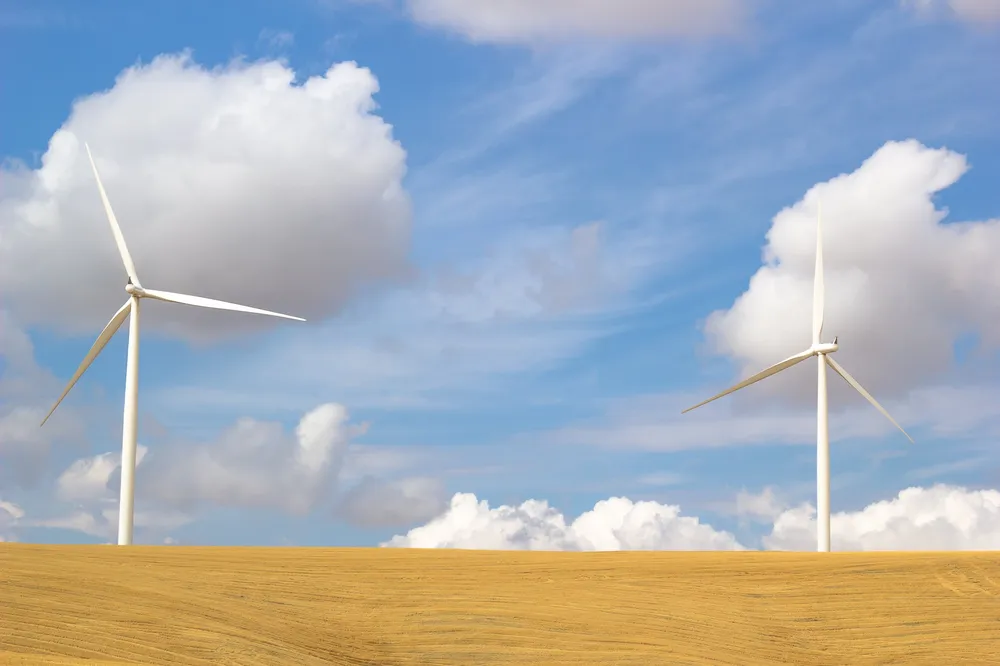US wind expansion forecast shrinks 40% on Trump uncertainty: WoodMac
This year is expected to see an uptick on IRA-driven orders made in 2023, but installations through 2030 will lag

US wind is expected to pick up this year following its slowest installations rollout in 2024, but long-term forecasts have shrunk 40% on Trump uncertainty, research consultancy Wood Mackenzie said in a recent report.
“Headwinds impacting the US wind industry will not ease any time soon, as uncertainty introduced by the new administration causes project delays, strategy shifts, and challenges to project economics through executive orders and tariffs,” WoodMac noted.
The order has greater impacts for offshore wind, which is developed almost exclusively in federal waters. Onshore wind by contrast is mostly located on private lands, although federal approvals and permits are still required.
As a result, WoodMac lowered its 5-year outlook to 45GW of wind power installations, including 33GW of onshore new builds, 5.5GW of repowers, and 6.6GW of offshore, down from a previous 75GW forecast.
Installations are expected to pick up this year, reaching 8.2GW, including 6.3GW of new builds and 1.9GW of repowering, as orders submitted in 2023 continue to wind through the pipeline.
The surge in orders resulted from the 2022 passage of the Inflation Reduction Act (IRA), which offers generous production and investment tax credits bolstering clean energy deployment.
“Despite uncertainty created by the new administration, the massive number of orders placed in 2023 culminating in projects now under construction, support the short-term forecast,” said Stephen Maldonado, research analyst at Wood Mackenzie.
The IRA and its tax credits have been targeted by President Donald Trump, who has vowed to stop the “new green scam”, as he describes the energy transition to renewables, putting a lag on the sector. As most supply chain investment and onshore wind deployment happens in Republican-controlled districts, the industry is hopeful that some or most of the law will be unaffected.
The pipeline for onshore has 10.8GW currently under construction through 2027, with another 3.9GW announced.
Three offshore wind projects are in construction, including Copenhagen Infrastructure Partners-Avangrid’s flagship Vineyard Wind 1, Orsted’s Revolution, and Dominion Energy’s Coastal Virginia Offshore Wind (CVOW) array.
Vineyard’s OEM GE Vernova said it expects to complete installation of 64 Haliade-X 13MW turbines by the end of this year.
Orsted has already announced that its 704MW Revolution project to Connecticut and Rhode Island will be delayed to 2026, while Dominion is slated to commission CVOW in 2027.
WoodMac sees total US offshore wind installations reaching 900MW this year.
GE Vernova retains its crown as top turbine supplier for onshore wind, capturing 56% of the market and “will continue to lead in connections for the next five years,” WoodMac said.
Vestas took 40% of the sector while Siemens Gamesa held onto 4%.
While policy gloom permeates the industry, data centre-driven load growth presents a rare upside.
US power demand is expected to grow roughly 2% annually, offering “some upside opportunity as data centres and manufacturing drive a need for additional generation capacity across all technologies,” WoodMac said.
(Copyright)